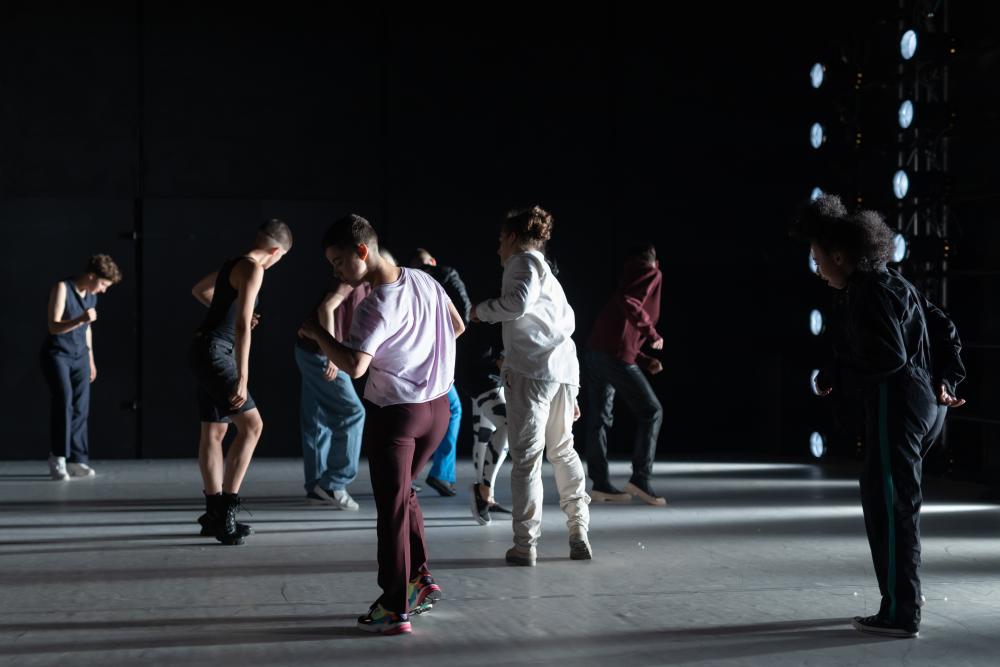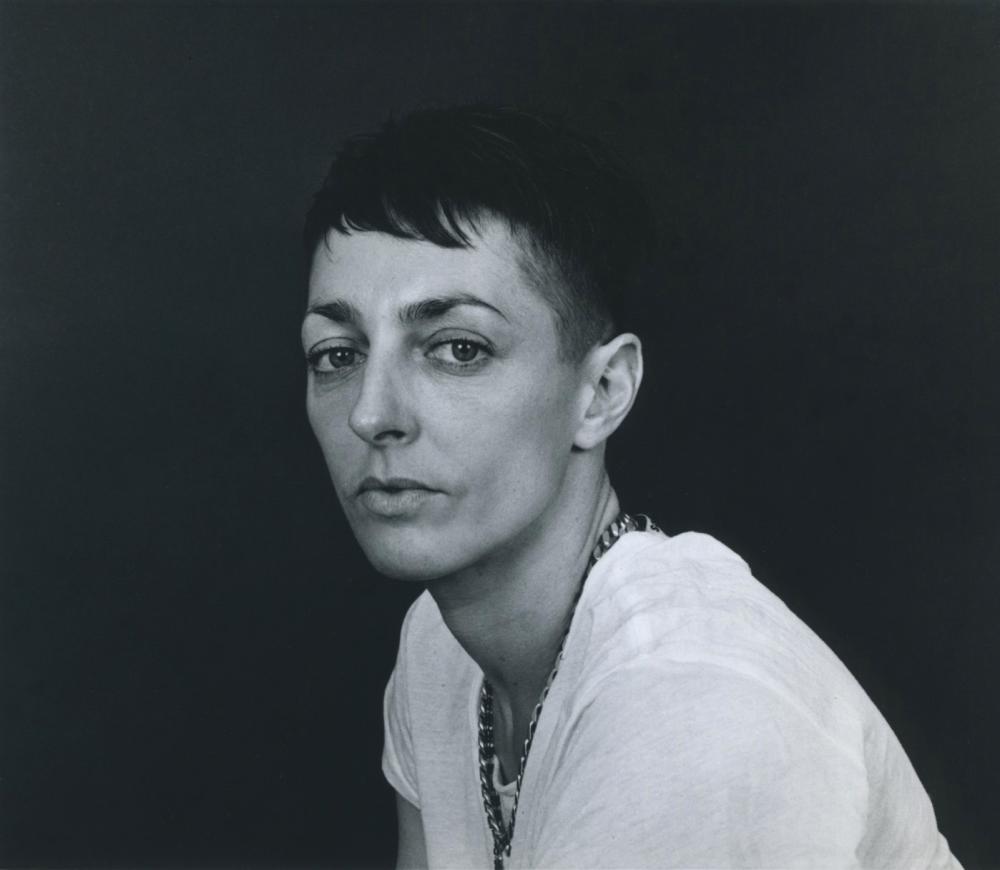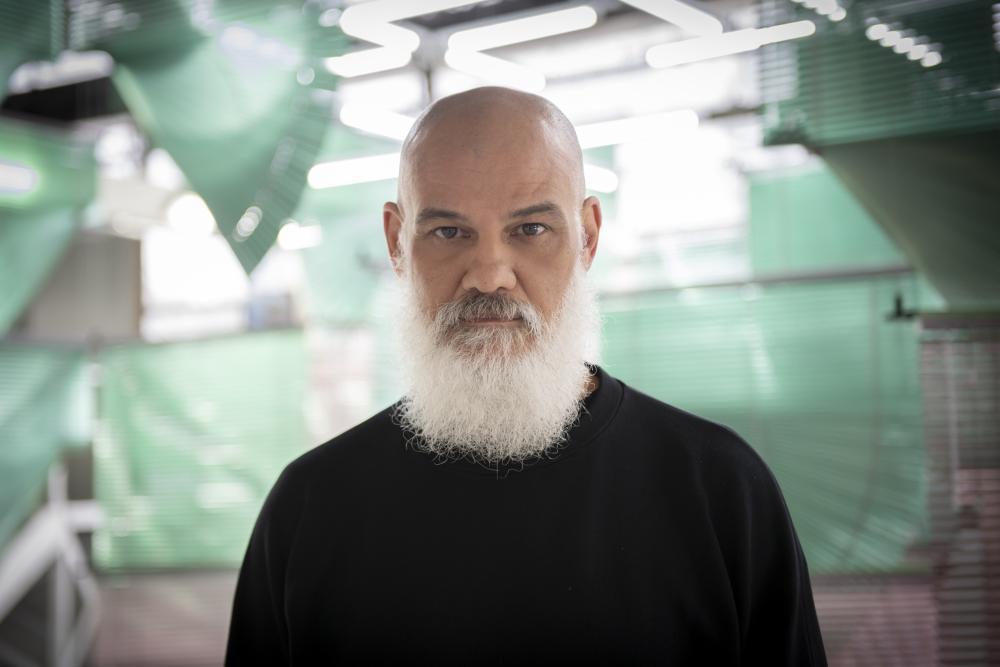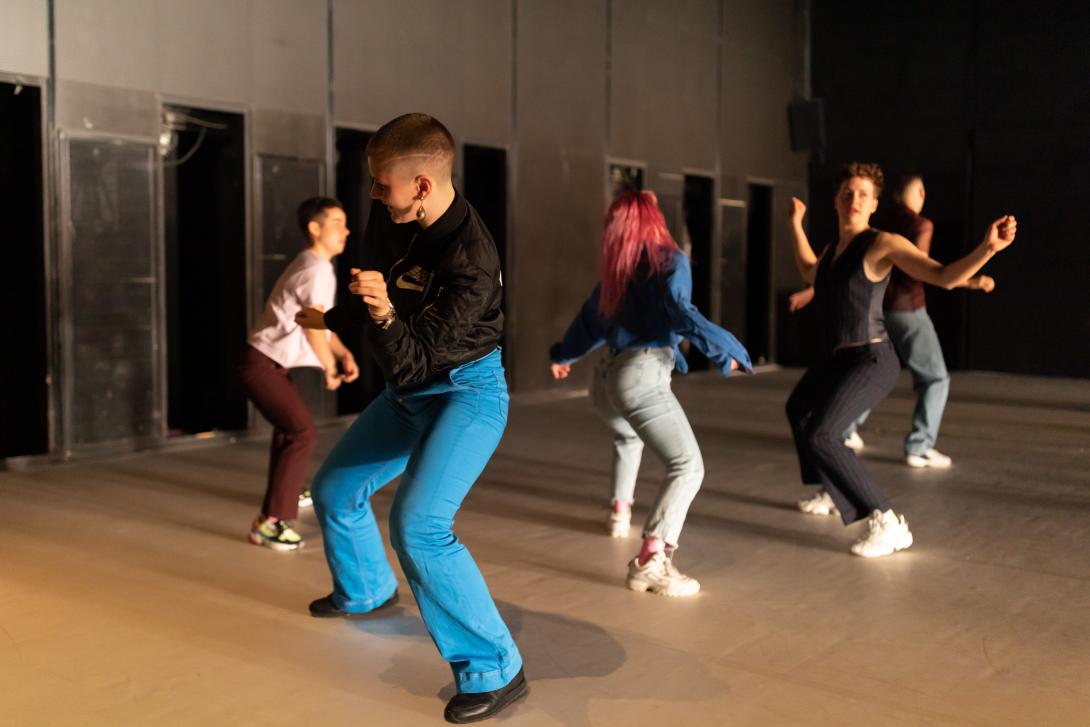Programmablad 'DRAMA.ApocalypticDanceFloor + Agenda'
Lees meer over DRAMA. ApocalypticDanceFloor + Agenda
on DRAMA. ApocalypticDanceFloor
The word DRAMA comes from the Greek word “Δράμα” meaning “action” or “to take action”. Used in theatre, the word can categorize a tragedy, a comedy, a farce or a melodrama. In nowadays life, drama can mean an overreaction to a situation or to blow everything out of control.
DRAMA is an attempt to make a dance piece. A piece based on movement with layers of irregular high energy, on a constant and brutal flow of bodies moving on the space while “othering” each other. A piece to allow dissent in opposition to harmony, on a process of embodying the desires, conflicts and paradoxes of the dancers, taking the body on its excitement, brutality, indignation, rage, joy, stupidity, fragility and exaggeration.
A piece to be danced on music. The music of the Brazilian group Tantão e Os Fita, an atmospheric and energetic structure created with blocks of noise, voices, sample layers, distortions, collages and loops, “on a misty of intense paranoia, claustrophobic uncertainty and violent polarization”, according to critics.
Tantão e Os Fita is a trio of electronic music from Rio de Janeiro, formed by the duo of producers Abel Duarte and Cainã Bomilcar and by the visual artist, singer and composer Carlos Antônio Mattos AKA Tantão. Their last album, DRAMA, was recorded in the days Jair Bolsonaro was elected president of Brazil. It is Black Music from the suburbs of a divided third world country, a furious and irreverent call from the minorities, music to be danced on an apocalyptic dance floor.
Marcelo Evelin is a dancer, choreographer and researcher. He lives between Teresina (Brazil) and Amsterdam (The Netherlands) and works in Brazil, Japan and in several countries in Europe as an independent artist for his artistical platform Demolition Incorporated, based in CAMPO, a space for Residency and Resistance of Performing Arts in Teresina. His shows De Repente Tudo Tudo Preto de Gente (2012), Batucada (2014) and A Invencao da Maldade (2019) currently circulate in theaters and festivals around the world. He teaches at the Mime School Amsterdam since 1999 and has been creating projects as part of Master degrees' courses at ISAC (Brussels), Reina Sofia Museum (Madrid), EXERCE (Montpellier) and CND (Paris) among others. In 2019 he received the title of Doctor Honoris Causa from the Federal University of Piaui.
on Agenda
In a first reading Agenda speaks to what is coming up in the future, what is on the horizon. It also suggests a concern and politics - as in what is my agenda?
Emerging from an inquiry into the notion of the ‘stranger’ and the ways in which we elevate or reject difference when encountering others, Simone Aughterlony proposes a research and performance project with the students of the Bachelor in Contemporary Dance from La Manufacture that builds on such lingering and politically charged questions through a lens of the collage.
With a long and rich history of appropriation and lifting from sourced references, the collage genre has arguably today become the most habitual and prevalent form of art expression whether consciously or not. Everything is referencing something else only we are not always attuned to the reference. With this in mind, the students were invited to reflect on the experience of attachment to certain objects for identification processes and interrogate a sense of belonging and origin that was not already saturated by institutional structures and the cultural anecdotal.
As if writing an insane script for 13 figures, the performers were given precise instructions to build individual reference material that embodies their concerns, reflect their “agenda”, which were developed to produce diverse components of the collage.
Kolla from the Greek word to glue or Coller from the French to paste offers a treatment of the space as a canvas to accumulate found sources and references: collaging genres of movement, text, action, song and material plasticity. The collage becomes a microcosm of society at large, a common ground which enables the us to move together, and yet makes visible where difference sticks. We may see that the conversation between different elements can never remain abstract but engenders an enduring dialogue of contradiction and meanings. Collage is pieces of other things. The edges don’t meet. In this sense Agenda becomes a temporal expression of the many becoming the one, with the one never fully resolved because of the many that continue to impinge upon it.
As a collection of things that maintain an impossible proximity, we look to question the nuances of co-existence versus conflict and the way affect shapes the spaces we inhabit. To be in the space of broken forms opens up for the emergence of multiple consequences that touch the political through the senses rather than the rational mind. Making friends with incoherence or delighting in broken-ness gives permission not to presume the event in the space of encounter between things. And like our world, the collage sustains or at least rehearses a continuity that is both distorted and potentially beautifully transgressive.
Simone Aughterlony is an independent artist based in Zurich and Berlin, working predominantly in dance and performance contexts. She has been devising queer-spirited choreographic works over the last sixteen years. In recent years, the works Biofiction, Uni * Form (co-authored with filmmaker Jorge León) and the collaborative project Everything Fits In The Room with artist Jen Rosenblit, a commission from HAU Hebbel am Ufer and Haus der Kulturen der Welt, have toured extensively. In 2018 these works could be seen in Venice Biennale Teatro for an invited artist focus. She is currently working on the performance, Remaining Strangers which concludes her research into conceptions of the stranger of which Compass and Maintaining Stranger are an integral part. Engaging with alternative forms of kinship, inside her process new constellations emerge as possibilities for reconfiguring a culture of togetherness that foster both familiar and unknown qualities. Her works playfully compose with representation and its saturation, seeping into and embracing the phenomenology of mis-recognition and the absurd.



